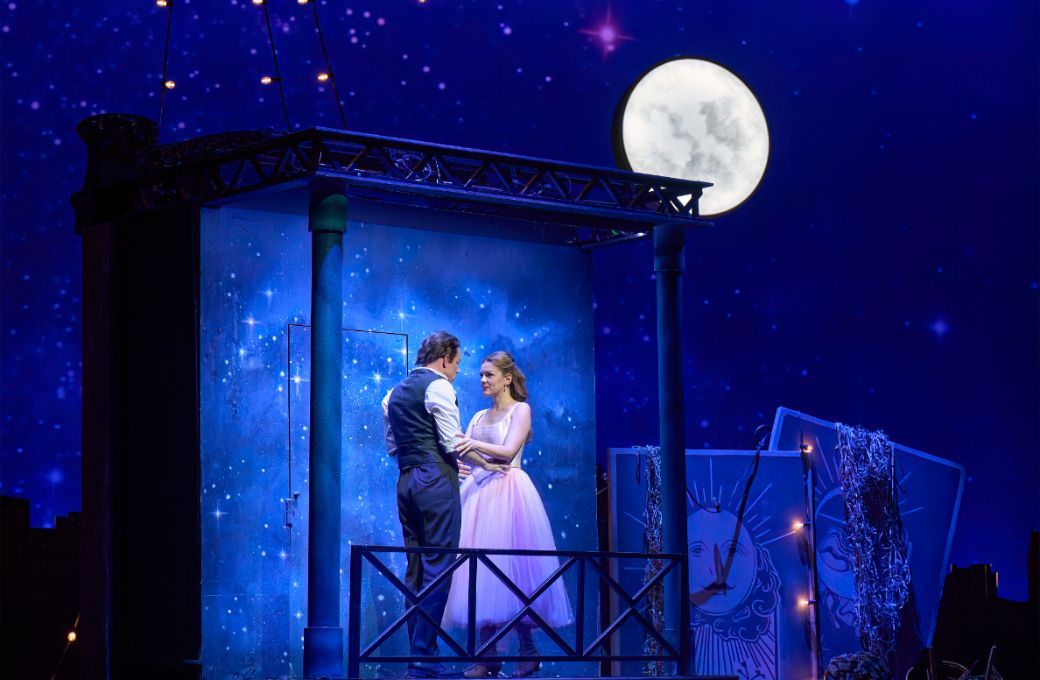This year’s opener to the Canadian Opera Company’s season paired director Amy Lane with Gounod, just as they did last season with Faust. This time around the production, imported from Malmö, although well sung and not devoid of eye candy, failed to find any new insights into the well known story of Roméo et Juliette.
Lane sets the action in 1890s New York, with the family rivalry between two successful Italian immigrant families: the Capulets in Entertainment and the Montagues in Finance. Apart from serving as a pretext for the rather louche New Year party that opens the opera, I couldn’t see how this idea was represented or what it added. The party, with excellent use of dancers, does provide colour and spectacle to kick things off, but the rest of the plot plays out conventionally enough. One interesting touch is that the conclusion of Act 4, after Juliette has taken the potion, plays out as a dream or hallucination with various characters appearing to Juliet in black outfits with gold skeletons on them. But that could be set anywhere. The one puzzle is at the end of the Duke’s speech exiling Roméo. He appears to be stabbed to death by Lady Capulet(?) who otherwise doesn’t appear. Odd, but then so is the Duke of New York exiling someone.
Visually it is spectacular, especially in Act 1 where Emma Ryott’s set and costumes for the circus-themed party feature oversized heads, giant playing cards and rather sinister clowns portrayed by an athletic and exotic troupe of dancers, choreographed by Michael Barry. Charlie Morgan Jones’ lighting here is also spectacular. Things get toned down a bit thereafter, especially in the dingy back street setting of Act 3, but pick up again for the last two acts. There’s always something interesting to look at, even if it doesn’t feel terribly profound and the use of dancers is better than the COC’s norm in that department.
The performances were good. Kseniia Proshina seems to be making something of a specialty of Juliette and she sang here with clear high notes and crisp coloratura. She was also quite affecting as an actor. She was well partnered by Stephen Costello as Roméo. Once again, clean high notes were paired with enthusiastically boyish acting. There was also a very solid Capulet from Mark Stone who swaggered through the party scene and personified the pater familias effectively after that.

The rest of the cast were Canadians well known to the house; indeed mostly past or present members of the COC’s young artists programme. Gordon Bintner was a swaggering and vocally sumptuous Mercutio contrasting effectively with Owen McCausland’s snarling and dangerous Tybalt. Robert Pomakov’s booming bass was thoroughly suited as Friar Laurence. Alex Hetherington, as Stéphano, sang “Que fais-tu, blanche tourterelle” rather beautifully but why she acted as if performing it in front of a line of naked chorus girls I’m not sure.
The COC orchestra and chorus were on good form and Yves Abel, conducting, got the balance right between Wagnerian heft and Offenbach-like gaiety.
All in all, this a decent production that doesn’t reach the heights of last year’s Faust. The music-making is well up to standard though and it makes an enjoyable enough evening at the opera.


